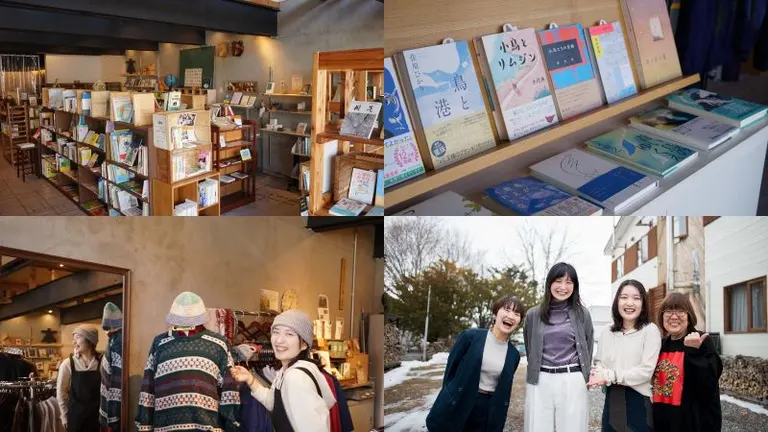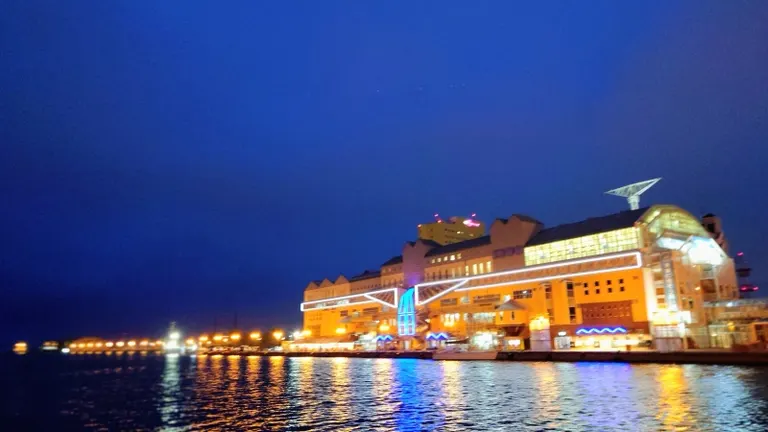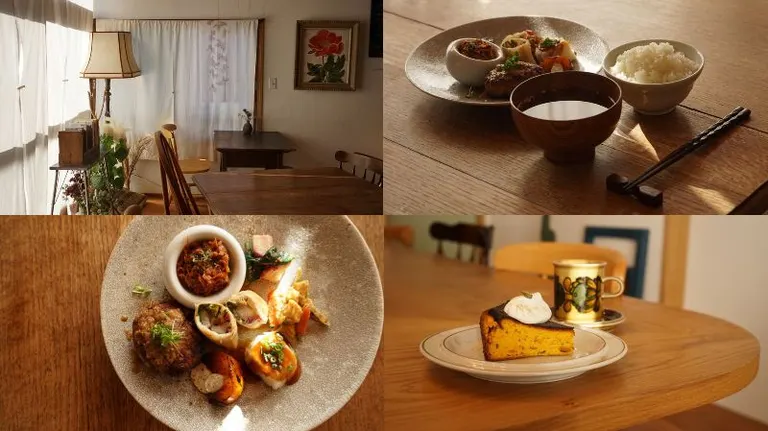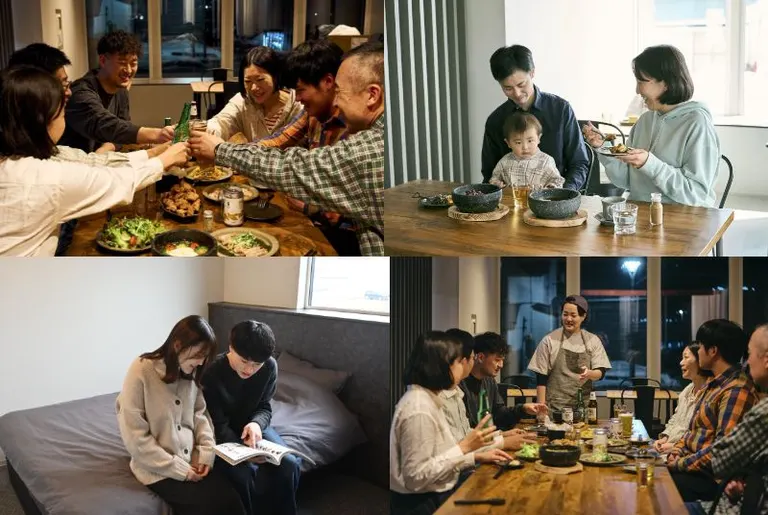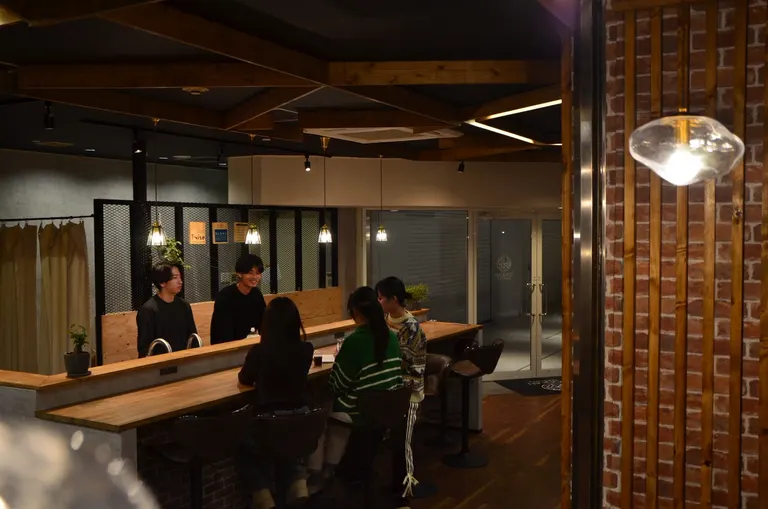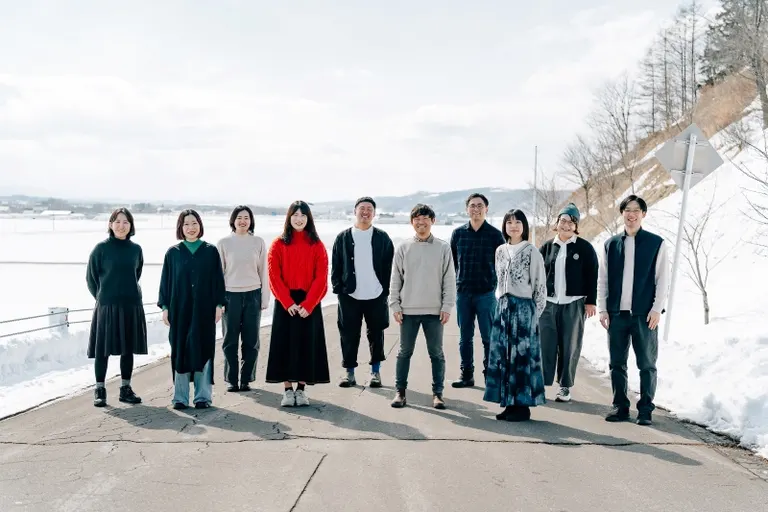
ARTICLES
We want to be conscious of the blessings from our region. The 'Local Secretariat' role that Dot Dōtō arrived at upon its 5th anniversary.
The "Regional Secretariat" Promoting Broad Cooperation
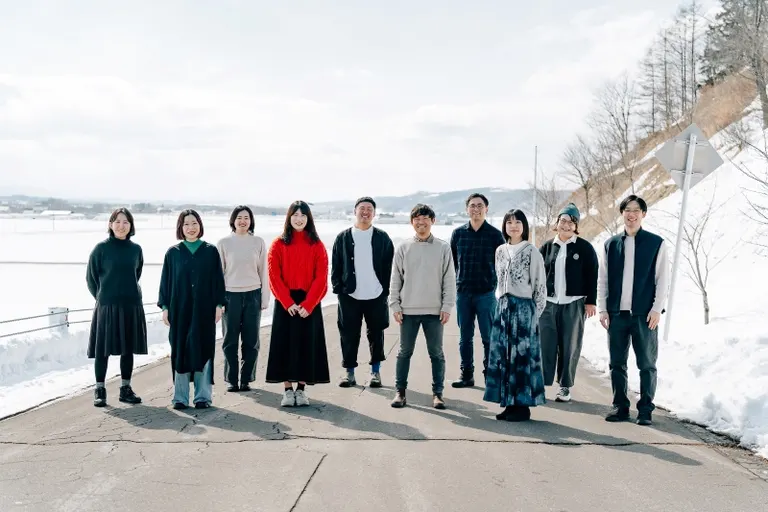
――To achieve both "realizing individual ideals" and "making it a region where that's possible," what kind of relationship do you think is important between individuals and the community?
Nakanishi: No matter how proud a restaurant is of its food, the fact that customers come is, at least in part, thanks to the benefits of the town. For example, Sapporo has a large population and many tourists. Compared to a town of a few thousand, the flow of people is overwhelmingly larger, and the chances of getting customers are higher.
To use a 'satoyama' (a community-managed forest) as an analogy, it's like an environment where you can gather lots of nuts and mushrooms. But just taking from it without giving back is exploitation, isn't it? Since you're benefiting from the environment, you should also make an effort to protect its abundance and help the nuts and mushrooms flourish.
――Just constantly receiving benefits while being indifferent to protecting that environment—that's a very one-sided relationship.
Nakanishi: Exactly. It's wonderful when an individual's efforts bring in more customers, but I think they should also be aware that they're benefiting from their surroundings and get involved themselves. I don't want people to be indifferent or have an 'it's not my problem' attitude.
It raises the question, "Who bears the resources to maintain and enhance this region?" Of course, some of it is covered by taxes, but if people become more conscious of the benefits they receive from the community, I think more approaches to improving the environment we live in will emerge. There's still a lot of room for that, and I believe building on that is the ideal relationship between individuals and the community.
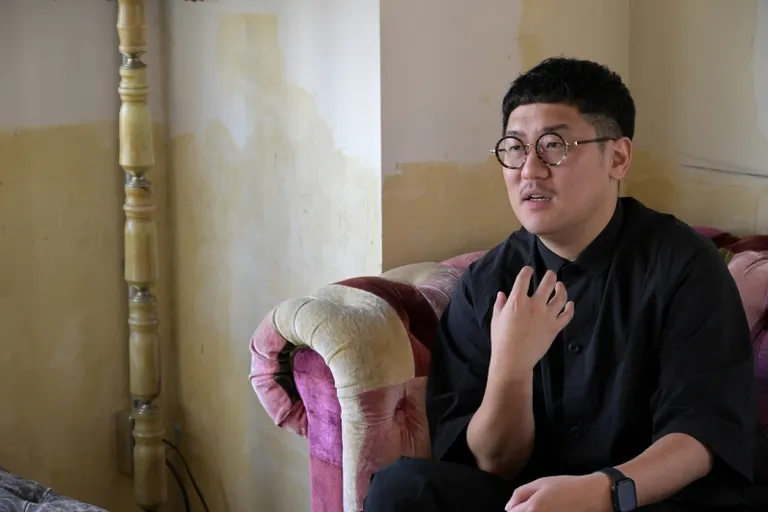
Nozawa: Depending on the region, you hear people say, "Our town has nothing," or "My company isn't interesting." But every town and every company has something interesting about it. We're good at finding that, and we can collaborate with various creators to communicate that appeal.
We're proud to say we're the best at that in Doto, so we actively work with local governments and regional companies. We want to help the region grow its population and boost its industries by letting them use .doto's connections and resources.
Nakanishi: I think a small shift in mindset can lead to innovation. Discovering local resources fosters civic pride, and realizing the originality of the products you handle boosts your sense of ownership in the company and your motivation for work, right? I believe such shifts in consciousness steadily change people's behavior.
――When you start to see the community or your company as your own concern, you naturally become more passionate about your activities.
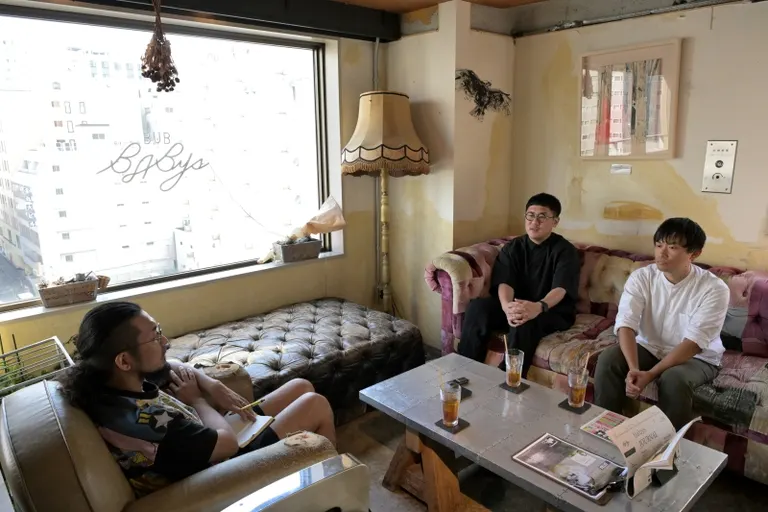
――You're involved in creative work, consulting, and various other businesses. How do you two perceive .doto as a company?
Nozawa: I see .doto as a company that creates opportunities and communities that make people think, "This is possible because it's Doto," or "This can only be done in Doto," both in work and in life.
The trend of "I'm moving to the city because I can't do what I want in the countryside" happens in every rural area. That's a sad thing, and I want to reduce it even a little. The more people who think, "I'll stay or come back because I can do what I want in the countryside," the more enjoyable our own lives become. So, I believe .doto's mission is to support those who take on challenges and to create an environment where they can do what they want.
Nakanishi: I think 'creative' and 'consulting' are just some of the tools we have. We're often seen as that kind of company, but I see .doto as more of a regional secretariat or a cooperative. It's a cooperative for people who are passionate about Doto, and a secretariat that provides the underlying support to increase the number of things that are 'possible because it's Doto' or 'can only be done in Doto.'
――I see. Calling it a 'secretariat' certainly makes it easier to understand the wide range of .doto's initiatives.
Nakanishi: By expanding this circle of people and work, we hypothesize that a broader Doto-wide connection and economic zone can be formed. I live in Kitami, but when I make friends or business partners in Kushiro, I grow to like that city, right? As those relationships spread, the movement of people becomes more active, and money starts to circulate within the region. In fact, a small-scale version of that is already happening around us.
I've come to realize that when a sense of belonging to the broader region of Doto emerges, on a different level from the municipality you live in, your actions change. The resources and people in the 'satoyama' of Kitami might be decreasing, but if a bridge is built to the 'satoyama' of Kushiro, movement becomes possible, creating a larger 'satoyama' of Doto. We always operate with this image of broad regional cooperation in mind.






